Artificial intelligence Artificial intelligence (AI) is revolutionizing the world of work, influencing job markets and employment patterns globally. In 2024, this impact will be more pronounced than ever as AI continues to evolve, driving significant changes across various industries. This article delves into the multifaceted impact of AI on employment, highlighting both the opportunities and challenges it presents.
Introduction to Artificial Intelligence and Employment
Artificial Intelligence (AI) refers to the simulation of human intelligence processes by machines, particularly computer systems. These processes include learning, reasoning, and self-correction. Employment trends are rapidly changing as AI becomes more integrated into daily business operations, influencing how tasks are performed and creating new job roles while rendering some traditional ones obsolete.
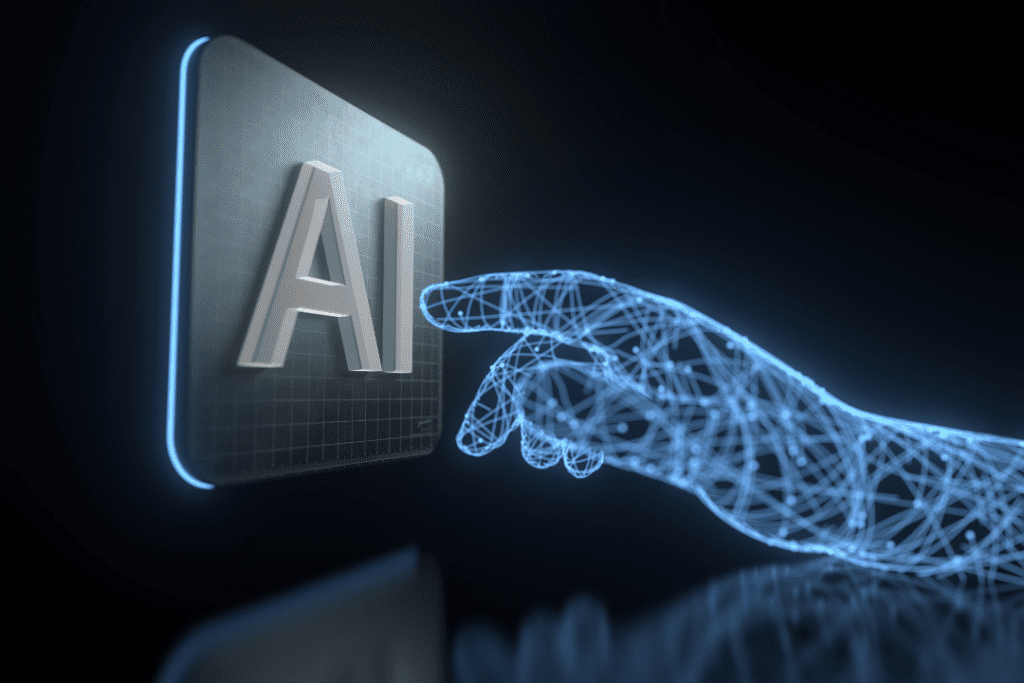
Understanding AI: A Brief Overview
AI encompasses a range of technologies, from machine learning and deep learning to natural language processing and robotics. Machine learning algorithms enable computers to learn from data and make predictions, while natural language processing allows machines to understand and respond to human language. Robotics involves the design and application of robots to perform tasks traditionally carried out by humans. These technologies collectively contribute to the transformative impact of AI on employment.
Employment Trends in the Age of Artificial intelligence
AI is reshaping employment landscapes in unprecedented ways. Automation and intelligent systems are taking over repetitive and mundane tasks, enabling humans to focus on more complex and creative aspects of their jobs. However, this shift also raises concerns about job displacement and the need for workers to acquire new skills to stay relevant in the job market.
Historical Perspective on AI and Employment
The integration of AI into the workplace is not a new phenomenon. It has been evolving for decades, with significant milestones that have shaped its current state.
The Evolution of AI in the Workplace
From the early days of basic automation to the sophisticated AI systems of today, the journey of AI in the workplace has been marked by continuous innovation. Initially, AI applications were limited to simple tasks, but advancements in technology have enabled more complex and integrated AI solutions.
Early Concerns and Adaptations
When the advanced application of artificial intelligence started to find its way into workplaces and organizations, there were fears that employees would be replaced by machines. Eventually, though, organisations and employees will come up with ways in which AI can be used to improve efficiency and generate new jobs.
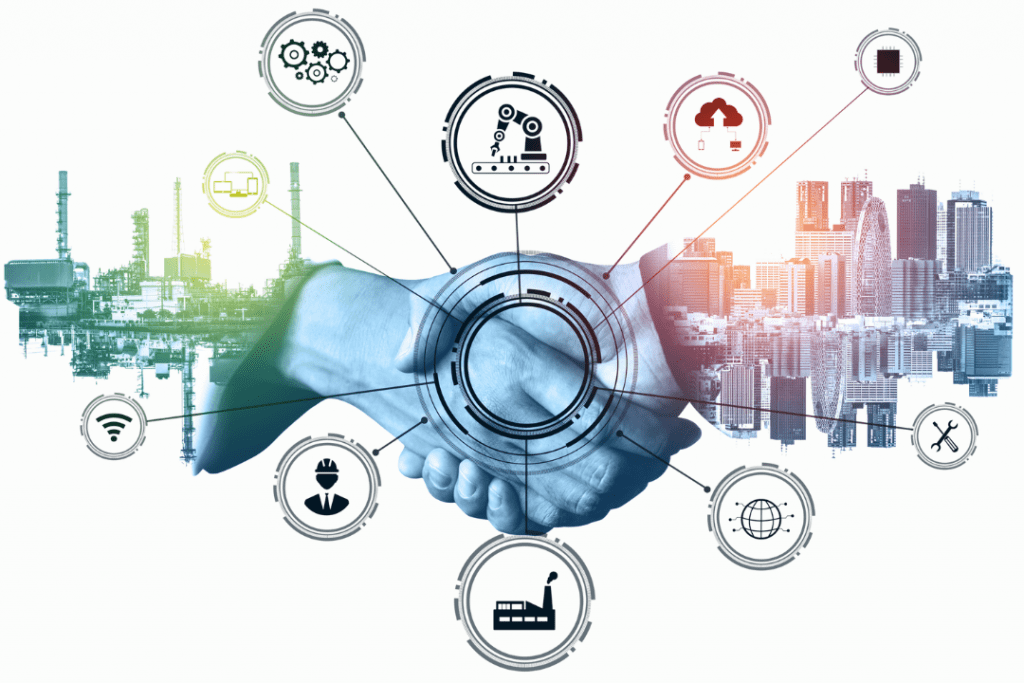
AI APPLICATIONS IN DIFFERENT INDUSTRIES
Based on the results summarized in this study, it is clear that AI has dissimilar effects on different industries, as every branch has its own requirements and possibilities.
Healthcare Transformation
They have found rather extensive use in the diagnosis, treatment, and care of patients in the field of health care. Data mining algorithms are used to analyze large amounts of data so as to arrive at correct diagnosis, as well as robotic surgical instruments that help in the operations to enhance the levels of accuracy. Application of AI is also helpful in reducing paper work, which was time-consuming in the past and took much of health care professionals’ time.
AI in Manufacturing
Due to the use of Artificial Intelligence and Automation, manufacturing has moved to the next level. Sophisticated intelligent robots and automatic systems are improving production, eliminating mistakes, and increasing protection. By using AI in the administration and management of manufacturing systems, predictive maintenance can be employed in predicting breakdowns of equipment and thus getting the right time to effect repairs to avoid excessive downtime and hence costs.
The Financial Sector
AI has experienced immense adoption in the financial sector in areas of fraud detection, risk assessment, and customer service automation, among others. Monitor has machine learning models that identify such transactions as fraudulent and also use artificial intelligence in chatbots that give instant customer support, resulting in quality and efficient service delivery.
Retail and Consumer Services
In retail, AI brings out better recommendations of products to be sold to consumers, stock management, and efficient supply chain. Other technologies, such as Hadoop, are used to forecast customers’ needs, and AI-assisted solutions like chatbots and virtual assistants create unique shopping experiences.
Technological Advancements Driving AI
The germination of artificial intelligence and its consequent progression in the modern world is the primary cause behind its increasing involvement with employment.
This is due to the fact that he has to work with machine learning and deep learning concepts, which are not very familiar to everyone or simple to understand or apply.
AI is divided into two main categories: artificial general intelligence and artificial narrow intelligence, of which machine learning is a part. Machine learning is subdivided into two types: deep learning, which uses neural networks for complex patterns in large datasets. These technologies are vital ingredients of many AI applications, as they provide machines with the means to perform tasks of progressively higher accuracy.
Natural Language Processing
Natural language processing, or NLP, is a complex process of trying to get computers to interpret or understand the use of natural language by humans. NLP is popularly used in virtual helpers, conversations, and language translators to make interactions with machines like the ones offered to humans.
Robotics and Automation
Robotic and Automation are becoming the new change agents in industries because they take over monotonous and risky operations. Sophisticated robots with artificial intelligence are applied in production, medicine, transportation, and other industries to enhance productivity, decrease risks for personnel, and cut down expenses for staff.
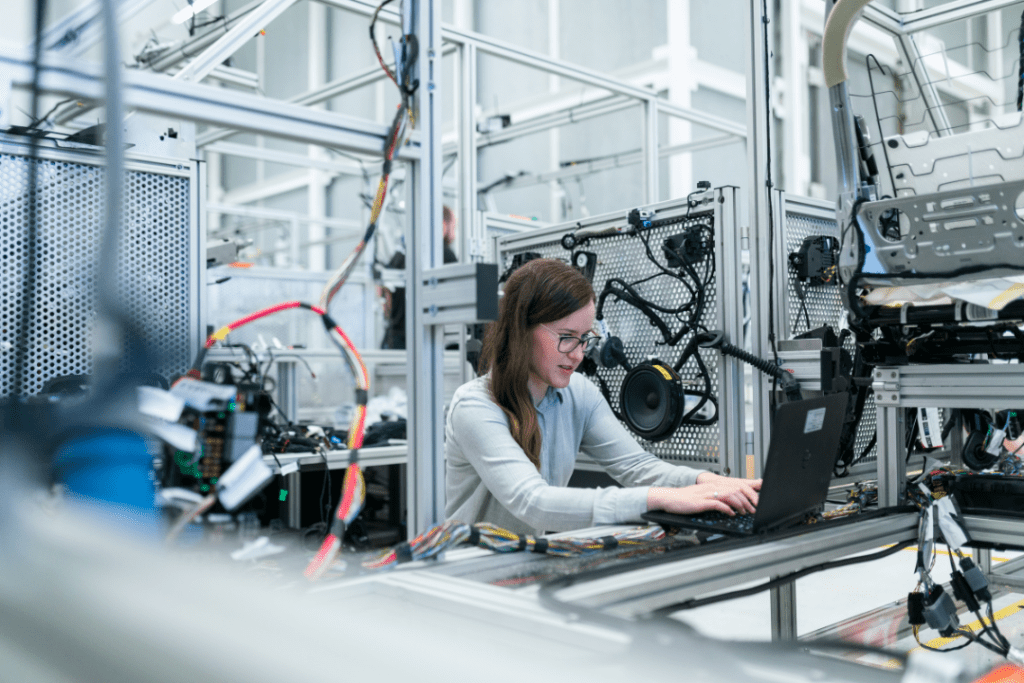
Opportunities Created by AI
Despite the threats mentioned, AI brings a number of promising perspectives and can become a boosting factor for many companies.
New Categories and Roles of Employment
AI is creating new occupations and positions that were not in practice a few years ago. There is a high demand for data scientists, artificial intelligence specialists, and machine learning engineers. Moreover, the posts related to the administration of the AI systems and the interpretation of the results provided by these systems are becoming more crucial.
Enhanced Productivity and Efficiency
As previously mentioned, AI has been proven to increase productivity and efficiency since many everyday activities can be performed automatically while making the best decisions. Thus, the effective means of AI implementation in businesses can lead to optimization, increased cost-efficiency and client-satisfaction.
Upskilling and Reskilling Programs
Also, flexibility through training is vital since the job market is set to transform in the future. These programs empower the workers with adequate skills to adapt to the new future enhanced by artificial intelligence technology; hence, they can manage new positions out of the new jobs created.
Advances in Artificial Intelligence also presents problems to employment.
Thus, it can be concluded that, while bringing many advantages, adoption of AI is also accompanied by threats that have to be mitigated in order to achieve a positive outcome across all categories of workers.
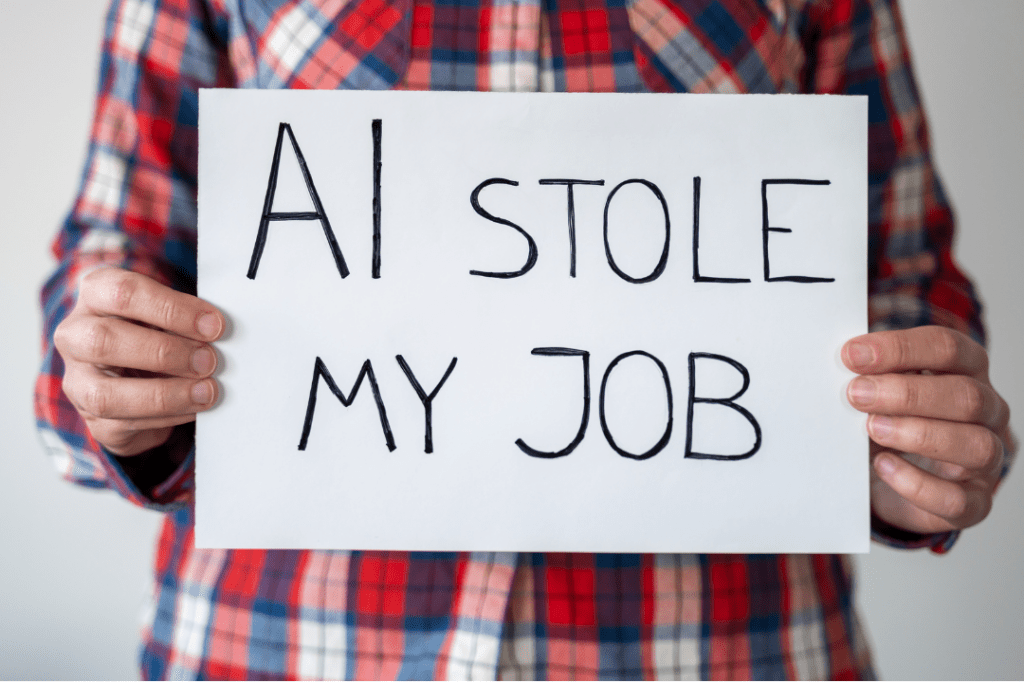
Lots of People Lose Their Jobs and Face Unemployment Probabilities
The fear of automation and the rise of AI is that this could possibly cause the loss of jobs among many employees. With automation of several jobs to eliminate monotony, boredom, and tediousness of work, workers in such positions lose their jobs or have to seek new professions all together. Failure to balance this displacement results in economic volatilities and worsening levels of inequality.
Ethical and Social Implications
The subject of employment and its relation to ethical and social aspects is questioned by artificial intelligence. The problems like prejudice of AI algorithms, collecting personal data, and surveillance capacity should be solved to make AI usage ethical. Additionally, the consequences of this situation that AI has on social relations and individuals’ lives should be considered as well.
Economic Inequality and AI
Economic inequality may be magnified with the help of AI technology since the opportunities that open before it may not be available to everyone. People in organizations and individuals with raw material possessions and skills in AI technologies will benefit from its use, while others will remain left out. The above risk indicates that policies and initiatives for inclusive growth are essential in managing the risk.
Case Studies: Smart Usage of Artificial Intelligence in Workplace
Analyzing case studies, it is possible to consider the experience in the application of such a tool as AI for more effective work.
Success Stories and Innovations
AI-Integration is still relatively new and establishing itself in many businesses, but the utilisation showed a massive increase in the effectiveness and creativity of their businesses. These examples shed light on the opportunities AI has when it is applied effectively and purposefully.
The Cases of Early Adopters
The first clients using AI faced diverse issues and prospects, which other market members may integrate as lessons. It can be understood that awareness of these experiences can support companies in managing AI situations more successfully.
Government and Policy Responses
Government policy, therefore, has a central role in mediating the effects of artificial intelligence on employment.
Regulatory Frameworks and Standards
The regulation of AI practices as well as the formulation of legal requirements for its use must be employed to avoid negative impacts of AI on society. Such regulations can serve to tackle problems like: data protection, details of the algorithms, and the standards of accepting AI solutions.
Programs to Help Transition at the Workplace
Bureaus as well as organizations are coming up with strategies that can help workers move to other lines of duty in an environment characterized by artificial intelligence. Such measures entail reskilling, financial aid for the affected workers, and rewarding companies that use AI.

Future Projections
In the future, employment changes by means of AI will unfold in a way that has both a short-term and a long-term future.
Short-Term Outlook (2024-2026)
In the short term, the emphasis will probably be placed more on the first and second priorities, namely how to deal with AI-specific threats such as unemployment due to AI automation, as well as the problem of the necessary retraining of the employees. On the Use of AI Companies will keep seeking out the best ways to apply AI in organizations, while governments will also advance on how to regulate and control the use of AI.
Long-Term Predictions (Beyond 2030)
AI is predicted to cause longer-term shifts in the job market that are even more significant than the ones mentioned above. New industries, degree levels, and fields of work are going to be developed, and the nature of work is not going to remain static. That these changes will culminate in sustainable and social economic development will be another accolade task for policymakers as well as business strategists.
Conclusion
It shows that the relationship of AI with employment in 2024 is a pretty sensitive subject matter. As much as the use of AI creates a lot of potential, especially in innovation and productivity, it also brings problems that should be solved to make sure that the outcome is fair and balanced. Through recognizing the patterns and consequences of AI in the workplace, organizations, employees, and administrations can devise a strategy for an AI-centered world.
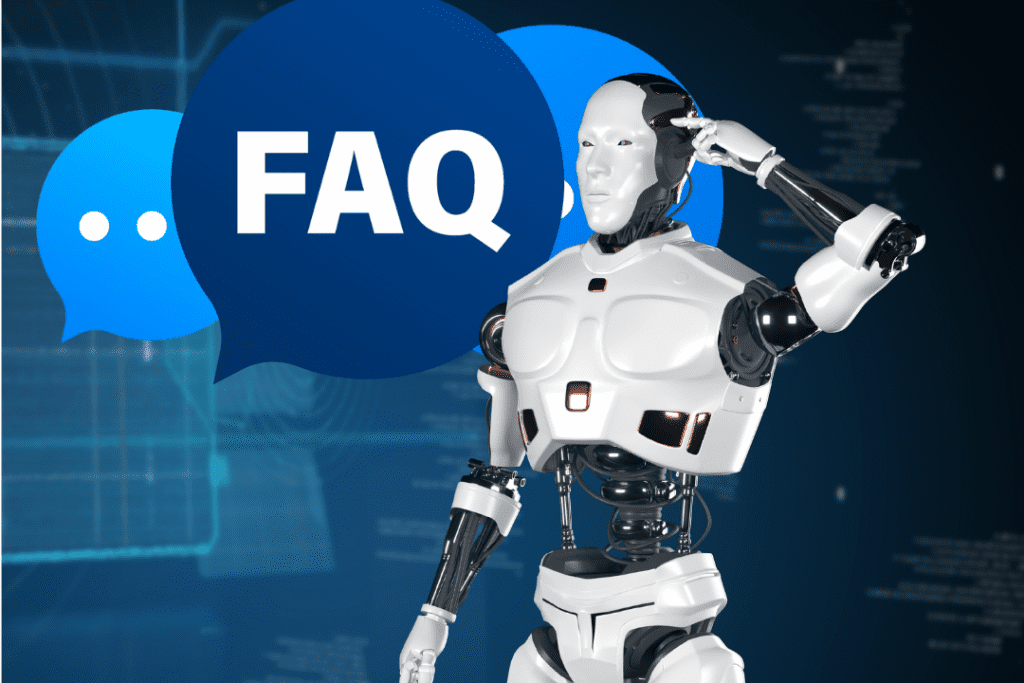
FAQs
As with all things in life, nothing is perfect, and so it is with artificial intelligence and employment. The following are questions about the biggest challenge of AI:
AI in employment remains a challenge since robots and machines, among other systems, can take up human jobs, thus causing unemployment. Workers hence have to look for other jobs to do.
With the rising implementation of artificial intelligence in employment, what can workers do?
In order to overcome this problem, the workers can undertake upskilling and reskilling mechanisms, keeping themselves abreast of the new technologies that AI brings in and also developing a new set of skills that is compatible with the use of AI.
Which sectors are using AI the most?
Those industries that are under pressure from advanced AI solutions are healthcare, manufacturing, financial services, and retail industries, since the application of AI is changing their businesses for the better and introducing new significant opportunities and risks.
It is necessary to tackle the following questions: What are the ethical issues of AI in relation to employment?
The concerns about AI and employment include concerns about the bias of the algorithms, rights to data privacy, the use of surveillance, and social justice if the opportunities brought about by AI are to be monetized and hence widen the gap between the rich and the poor.
In what way is the extent and nature of employment foreseen to alter by the year 2024 through the influence of AI?
AI studies predict that by 2024, the employment sphere may be altered greatly; new jobs may appear, and workers will have to learn new skills to meet the employers’ demands.
This paper aims to present what governments are doing to address the impact of AI on employment.
Therefore, it is up to governments to respond to AI’s effects on employment by creating rules and regulations regarding the usage of AI technology, offering people opportunities to train for new jobs, and ensuring proper distribution of new AI opportunities.

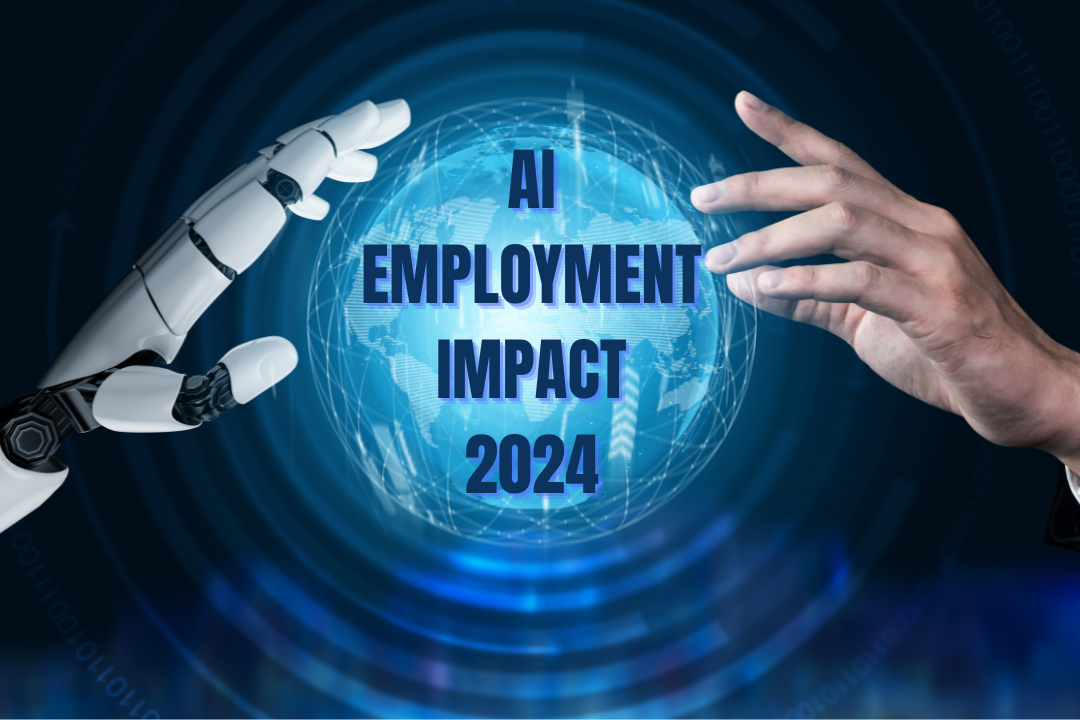






0 Comments